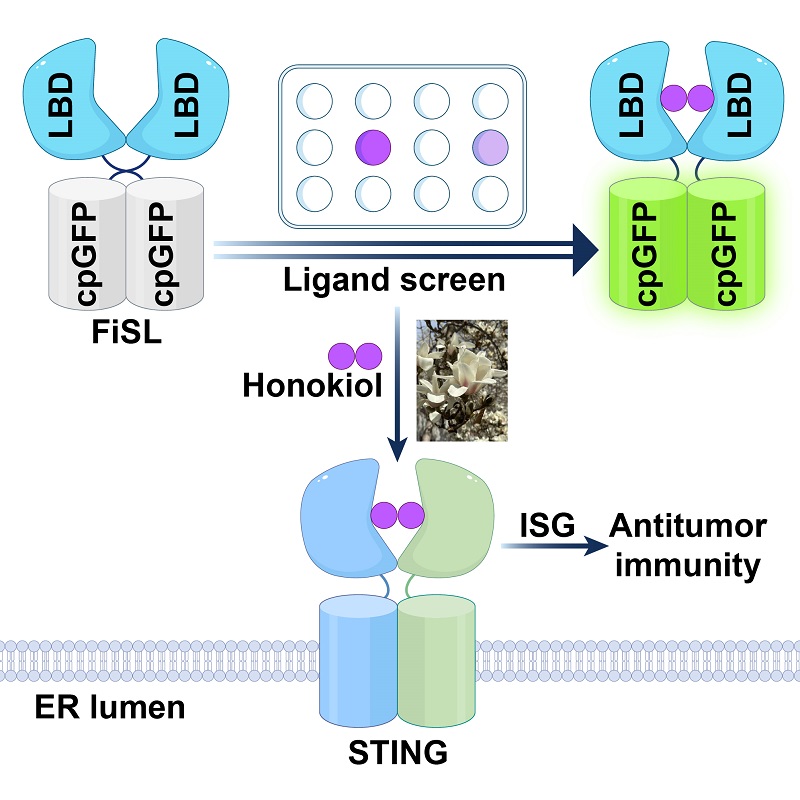New Fluorescent Sensor Uncovers Honokiol as a Potent STING Agonist for Cancer Immunotherapy
The stimulator of interferon genes (STING) signaling pathway is closely associated with tumor initiation, progression, and metastasis. Developing small-molecule STING agonists is considered a promising strategy for cancer immunotherapy. However, due to the lack of efficient screening tools, the development of STING-targeted small molecules has been severely constrained.
On July 15, 2025, a research team led by Prof. LI Xinjian from the Institute of Biophysics of the Chinese Academy of Sciences developed a fluorescent probe for high-throughput screening of STING ligands, named FiSL (Fluorescence Indicator for STING Ligand). The study was published in Cell Reports Methods.
Using the FiSL probe as a screening tool, the researchers identified honokiol, a small-molecule compound, as a STING agonist. Honokiol is an active ingredient in the traditional Chinese medicine formula Banxia Houpu Decoction, which is traditionally used to resolve phlegm, regulate qi, and relieve stagnation.
Animal experiments showed that orally administered honokiol can be rapidly delivered to tumor tissues, activate antitumor immunity, and significantly prolong survival in various solid tumor-bearing mouse models (including colorectal cancer, melanoma, and breast cancer), with no obvious toxic side effects.
"Our work introduces FiSL as a versatile platform for STING-targeted drug discovery and reveals honokiol as a novel, orally active STING agonist," the researchers stated. "This opens a new path for developing plant-derived immunomodulators in precision oncology."
This study is expected to provide a novel immunotherapeutic strategy for cancer patients and open up new avenues for the modernization of traditional Chinese medicine.

Figure. Development of the STING ligand fluorescent probe FiSL and its application in antitumor drug screening.
(Image by LI Xinjian's group)
Article link:
https://www.cell.com/cell-reports-methods/fulltext/S2667-2375(25)00142-0
Contact: LI Xinjian
Institute of Biophysics, Chinese Academy of Sciences
Beijing 100101, China
E-mail: lixinjian@ibp.ac.cn
(Reported by Prof. LI Xinjian's group)

